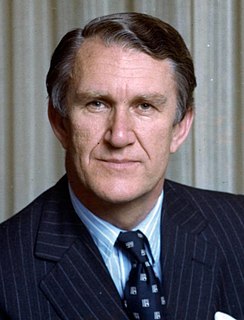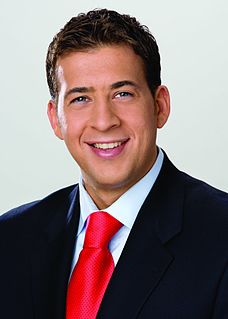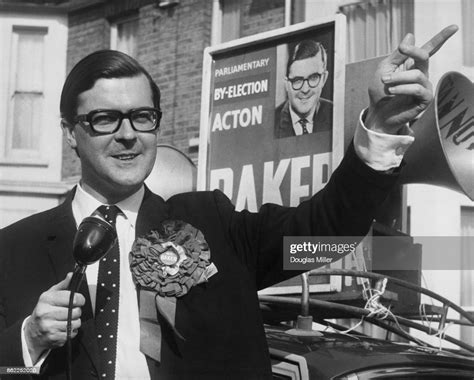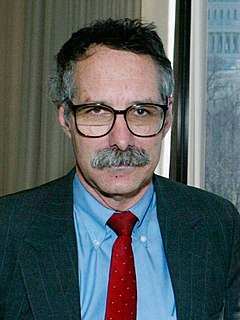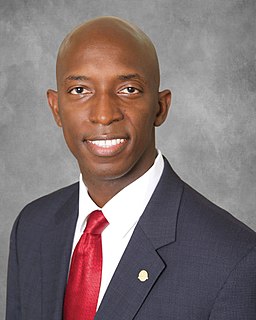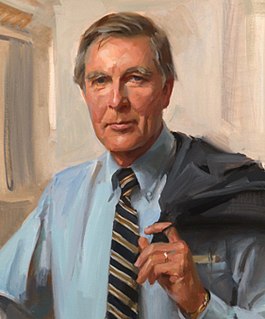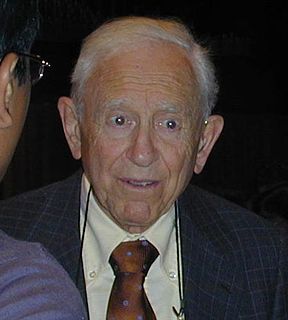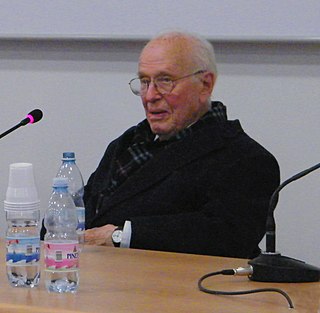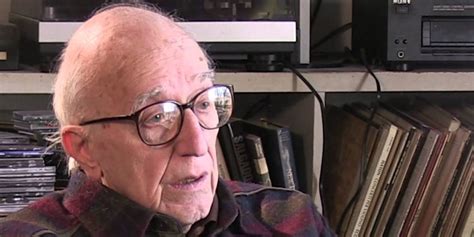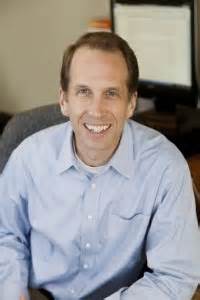Top 473 Economists Quotes & Sayings - Page 7
Explore popular Economists quotes.
Last updated on December 4, 2024.
For the historian everything begins and ends with time, a mathematical, godlike
time, a notion easily mocked, time external to men, 'exogenous,' as economists
would say, pushing men, forcing them, and painting their own individual times
the same color: it is, indeed, the imperious time of the world.
Of all the thankless jobs that economists set for themselves when it comes to educating people about economics, the notion that society is better off if some industries are allowed to wither, their workers lose their jobs, and investors lose their capital - all in the name of the greater glory of globalization - surely ranks near the top.
One of the profound effects of economics in our day is that the people with the money and the power have embraced the guilt-free, external-less, everything-will-turn-out-okay-in-the-end philosophy of economics in order to justify their own evil works. And the economists, for the most part, have sucked up to that money.
There is the expression of selfishness and there is the expression of selflessness - but economists or theoreticians never touched that part. They said: 'Go and become a philanthropist.' I said, 'No, I can do that in the business world, create a different kind of business - a business based on selflessness.'
Since the global financial crisis and recession of 2007-2009, criticism of the economics profession has intensified. The failure of all but a few professional economists to forecast the episode - the aftereffects of which still linger - has led many to question whether the economics profession contributes anything significant to society.
Economists have the correct insight that economics is a theory of choice, the key to the story is the variety of options and centralised political control limits the options. The best recipe is adaptive efficiency coping with novel uncertainty in a non-ergodic world, the maintenance of institutions which enable trial & error experiment to occur, and an effective means of eliminating unsuccessful solutions
An overwhelming number of economists, international civil servants, and policy-makers argue that a fragmentation of the Eurozone would cause a new depression and massive wealth destruction around the world. It would also end the period of economic integration that has characterized world politics since the end of the Cold War.
But if, if you take a look at what would have happened, I mean, do we need to see soup lines down the street to figure out what would have happened? We avoided - and all economists will tell you that millions of jobs were saved because of the Recovery Act, and we avoided a second Great Depression. That, that is a reality.
Philosophy can add to our happiness in no other manner but by diminishing our misery; it should not pretend to increase our present stock, but make us economists of what we are possessed of. Happy were we all born philosophers; all born with a talent of thus dissipating our own cares by spreading them upon all mankind.
Intellectual-property rules are clearly necessary to spur innovation: if every invention could be stolen, or every new drug immediately copied, few people would invest in innovation. But too much protection can strangle competition and can limit what economists call 'incremental innovation' - innovations that build, in some way, on others.
Can a controlled experiment explain why people like Kewpie dolls in one year, Beanie Babies in another, and American Girl dolls this year? Yet social scientists are asked to answer analogous questions. We economists and perhaps psychologists shouldn't overreact to the derision. That is, we shouldn't try to overlay a false sense of precision on our admittedly squooshy work.
Some struggle with medical issues - like insomnia - that make sleep hard. But for many of us, the quantity and quality of sleep come down to a matter of choice. Still, only a few enterprising economists have looked closely at this, and generally, those have assumed that we choose our hours of sleep optimally.
Repeal the entire Banking Act of 1933, and Austrian School economists will cheer, especially if the current system were replaced by a 100%-reserve competitive banking with no central bank. That banking reform would give us a sound money system, meaning no more business cycle, bailouts, or inflation.
Let the realist not mind appearances. Let him delegate to others the costly courtesies and decorations of social life. The virtuesare economists, but some of the vices are also. Thus, next to humility, I have noticed that pride is a pretty good husband. A good pride is, as I reckon it, worth from five hundred to fifteen hundred a year.
Often, economists spend their energies squabbling with one another, but arguably the more important contrast is between our broadly liberal economic worldview and the various alternatives - common around the globe - that postulate natural hierarchies of religion, ethnicity, caste and gender, often enforced by law and strict custom.
Some economists became obsessed with market efficiency and others with market failure. Generally held to be members of opposite schools-freshwater and saltwater, Chicago and Cambridge, liberal and conservative, Austrian and Keynesian-both sides share an essential economic vision. They see their discipline as successful insofar as it eliminates surprise-insofar, that is, as the inexorable workings of the machine override the initiatives of the human actors.
Contraceptives unlock one of the most dormant, but potentially powerful assets in development: women as decision-makers. When women have the power to make choices about their families, they tend to decide precisely what demographers, economists, and development experts recommend. They invest in the long-term human capital of their families.
How should the best parts of psychology and economics interrelate in an enlightened economist's mind?... I think that these behavioral economics...or economists are probably the ones that are bending them in the correct direction. I don't think it's going to be that hard to bend economics a little to accommodate what's right in psychology.
One intriguing subplot of the economic crisis is the failure of most economists to predict it. Here we have the most spectacular economic and financial crisis in decades - possibly since the Great Depression - and the one group that spends most of its waking hours analyzing the economy basically missed it.
There are men regarded today as brilliant economists, who deprecate saving and recommend squandering on a national scale as the way of economic salvation; and when anyone points to what the consequences of these policies will be in the long run, they reply flippantly, as might the prodigal son of a warning father: 'In the long run we are all dead.' And such shallow wisecracks pass as devastating epigrams and the ripest wisdom.
What's the single most important thing to learn from an economics course today? What I tried to leave my students with is the view that the invisible hand is more powerful than the hidden hand. Things will happen in well-organized efforts without direction, controls, plans. That's the consensus among economists. That's the Hayek legacy.
Economists who studied in the '80s tend to have a pretty crude neoclassical view that's just about freeing up prices and markets, and then you'll get the growth and everybody benefits. And they'll just repeat that, because if you're a minister or a senior civil servant, you don't have time to read anything anymore. You get very fixed in your views.
Many respected economists and statesmen believe our national debt is neither unwieldy nor a dangerous burden on the country. The trouble is that a vast majority of the American people think otherwise.... It violates basic American ideas of thrift and money management. These strong public feelings cannot be ignored forever.
Until the 19th century, the term 'to consume' was used mainly in its negative connotations of 'destruction' and 'waste'. Tuberculosis was known as 'consumption', that is, a wasting disease. Then economists came up with a bizarre theory, which has become widely accepted, according to which the basis of a sound economy is a continual increase in the consumption (that is, waste) of goods
Labour is the source of all wealth, the political economists assert. And it really is the source -- next to nature, which supplies it with the material that it converts into wealth. But it is even infinitely more than this. It is the prime basic condition for all human existence, and this to such an extent that, in a sense, we have to say that labour created man himself.
Throughout the industrial era, economists considered manufactured capital - money, factories, etc. - the principal factor in industrial production, and perceived natural capital as a marginal contributor. The exclusion of natural capital from balance sheets was an understandable omission. There was so much of it, it didn't seem worth counting.
The accepted ideas of any period are singularly those that serve the dominant economic interest...What economists believe and teach, whether in the United States or in the Soviet Union, is rarely hostile to the institutions - the private business enterprise, the Communist Party - that reflect the dominant economic power. Not to notice this takes effort, although many succeed.
Despite the array of groups and organizations working on global warming, we are still missing a key element: the movement. Along with the hard work of not-for-profit lobbyists, environmental lawyers, green economists, sustainability-minded engineers, and forward-thinking entrepreneurs, it's going to take the inspired political involvement of millions of Americans to get our country on track to solving this problem.
I'm struck by how very few people outside a rarefied world of true believers understand what you mean when you say human rights - that includes development experts and economists who are very keen to implement the UN Millennium Development Goals. They've told me quite frankly, that they don't know exactly what a human rights approach is.
The years of the Great Depression were a superb time for economists because people not knowing what could be done or what should be done would always assume that maybe an economist had the answer. If you were just a lawyer in Washington, you were nobody. But if you were an economist, you might have the answer.
We chose to do this work mathematically, which has the advantage of precision but is not always appreciated by readers. It is perhaps for this reason that anthropologists have not shown much interest in these models, unlike economists, for example, for whom the use of mathematics poses no problem. However, one could reach the same conclusions by using just a bit of common sense.
One of the fairly interesting things about money is that it makes certain things possible that wouldn't be possible otherwise - it doesn't make them inevitable. Hence the strange blindness of economists to what would actually happen when one does exchange things if there isn't money in such contexts.
The evolution of government from its medieval, Mafia-like character to that embodying modern legal institutions and instruments is a major part of the history of freedom. It is a part that tends to be obscured or ignored because of the myopic vision of many economists, who persist in modeling government as nothing more than a gigantic form of theft and income redistribution.
A wide range of possible fiscal policy tools and approaches could enhance the cyclical stability of the economy. For example, steps could be taken to increase the effectiveness of the automatic stabilizers, and some economists have proposed that greater fiscal support could be usefully provided to state and local governments during recessions.
The need for de-development presents our economists with a major challenge. They must design a stable, low-consumption economy in which there is a much more equitable distribution of wealth than in the present one. Redistribution of wealth both within and among nations is absolutely essential if a decent life is to be provided for every human being.
There is one great advantage to being an academic economist in France: here, economists are not highly respected in the academic and intellectual world or by political and financial elites. Hence they must set aside their contempt for other disciplines and their absurd claim to greater scientific legitimacy, despite the fact that they know almost nothing about anything.
In the early 1990s, there was a debate among economists over shock therapy versus a gradualism strategy for Russia. The people in Russia who believed in shock therapy were Bolsheviks a few people at the top that rammed it down everybody's throat. They viewed the democratic process as a real impediment to reform.
where Nietzsche's response to the equation of socialism and morality was to question the value of morality, at least as it had been customarily understood, economists like Mises and Hayek pursued a different path, one Nietzsche would never have dared to take: they made the market the very expression of morality.
Economists have provided capitalists with a comforting concept called the "free market." It does not describe any part of reality, at any place or time. It's a mantra conveniently invoked when it is proposed that government do something the faithful don't like, and just as conveniently ignored whenever they want government to do something for them.
It is almost as hard to define mathematics as it is to define economics, and one is tempted to fall back on the famous old definition attributed to Jacob Viner, "Economics is what economists do," and say that mathematics is what mathematicians do. A large part of mathematics deals with the formal relations of quantities or numbers.
Economists use the word consume to mean "utilize economic goods," but the Shorter Oxford Dictionary's definition is more appropriate to ecologists: "To make away with or destroy; to waste or to squander; to use up." The economies that cater to the global consumer society are responsible for the lion's share of the damage that humans have inflicted on common global resources.



